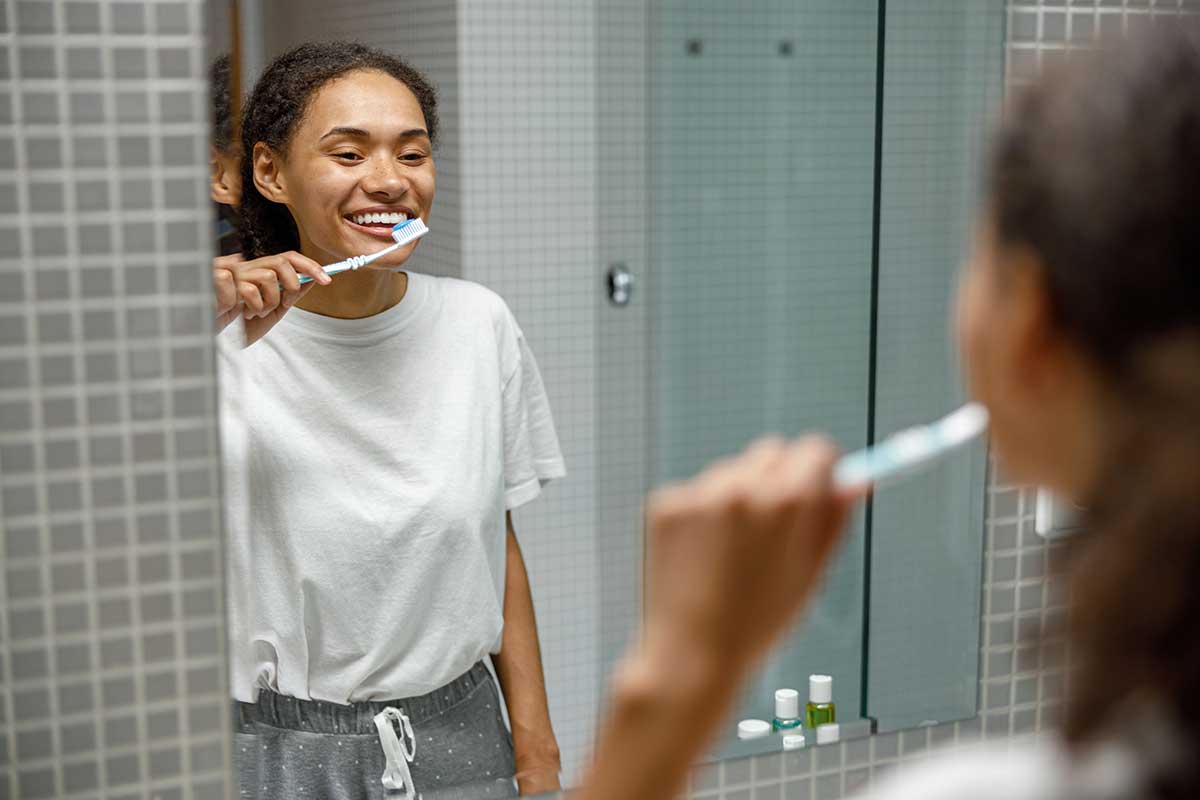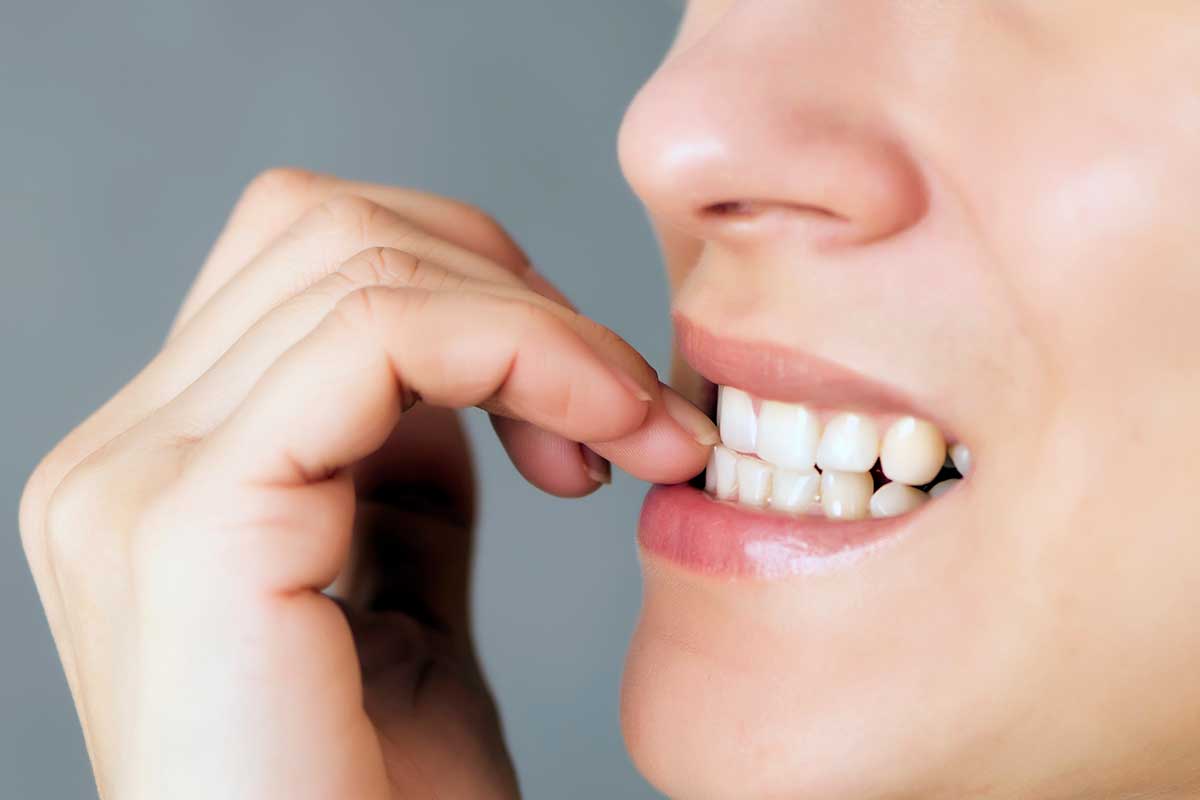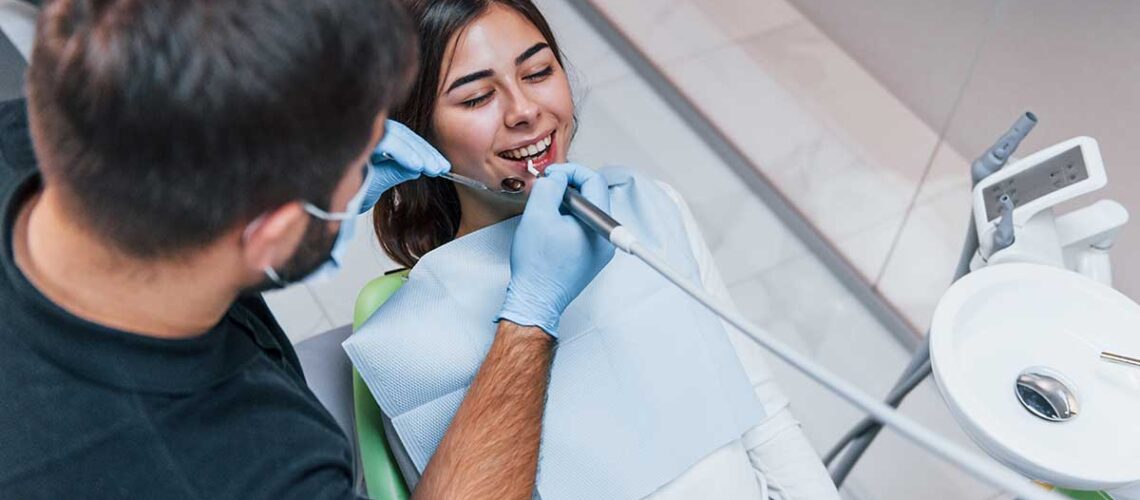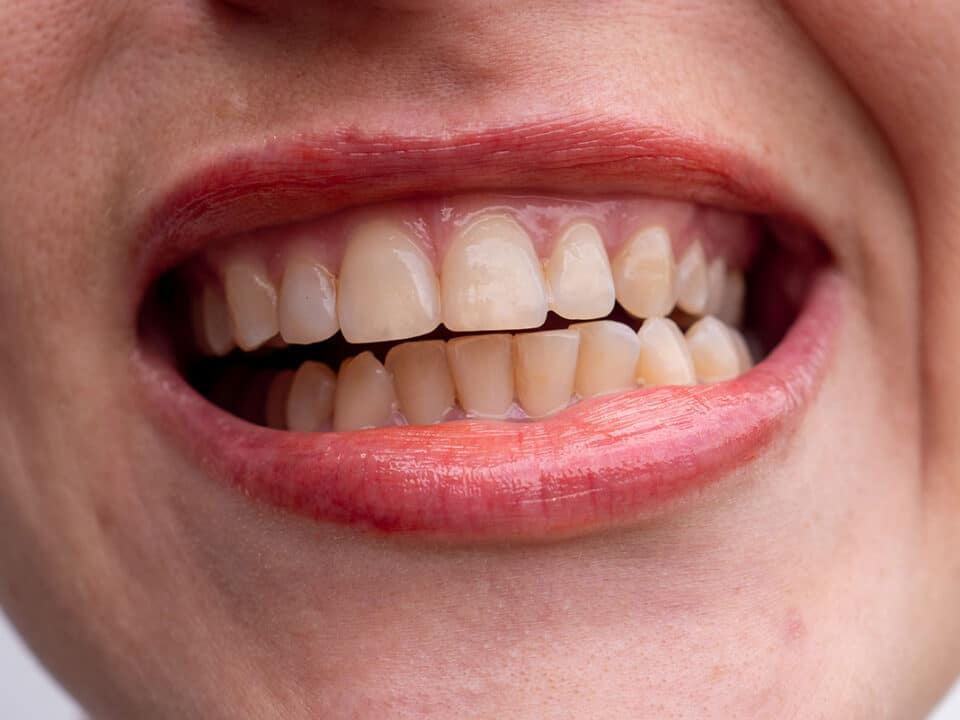Don’t let tooth pain or oral health concerns put a damper on your day. Instead let preventative dentistry give you a powerful shield for your smile. Preventative dentistry involves taking proactive measures to maintain good oral health and prevent dental problems before they occur. It focuses on promoting proper oral hygiene practices, regular dental check-ups, and preventive treatments.
Let our dental team guide you through the benefits, and key practices of staying on top of your oral health, and how you can stay pain-free and out of the dentists chair.
Table of Contents
Understanding preventative dentistry

Dental prevention plays a crucial role in maintaining optimal oral health. One of the key aspects of preventative dentistry is the early detection and treatment of dental issues. Regular dental check-ups allow dentists to identify any potential problems at an early stage, such as cavities, gum disease, or oral infections. This enables prompt intervention and prevents the progression of these conditions, ultimately saving the individual from more extensive and expensive dental treatments in the future.
Preventive dentistry also includes a range of daily strategies and practices that can help you maintain a healthy smile – hygiene, lifestyle and diet. By adopting these preventive measures, you can save yourself from the pain, discomfort, and expense of extensive dental treatments.
Understanding preventative dentistry helps individuals adopt healthy habits like regular brushing, flossing, and using mouthwash. These practices remove plaque, bacteria, and food particles from the teeth and gums, reducing the risk of tooth decay and gum disease.
Knowing what’s involved also empowers individuals to take control of their oral health and enjoy a lifetime of healthy smiles.
Daily preventative oral hygiene practices

Maintaining good oral hygiene is essential for preventing dental issues, and it’s easier than you think. Take the time to practice these daily habits to help keep your teeth and gums clean and healthy.
Brush your teeth at least twice daily using a soft-bristled toothbrush and fluoride toothpaste. Make sure to brush all surfaces of your teeth, including the front, back, and chewing surfaces.
Tip – Ensure you’re using the correct brushing technique.
Floss daily to remove plaque and food particles between your teeth and the gumline. Use a gentle back-and-forth motion to ensure thorough cleaning. Flossing is key for healthy gums and warding off bad breath.
Rinse your mouth with an antimicrobial mouthwash to kill bacteria and freshen your breath. Look for a mouthwash that contains fluoride for added protection against tooth decay.
Tip: Don’t limit rinsing to after you’ve brushed and flossed. Rinsing your mouth with water after meals can be very helpful in avoiding bacterial buildup.
Limit your consumption of sugary and acidic foods and drinks, as they can contribute to tooth decay and enamel erosion. Instead, opt for a balanced diet rich in fruits, vegetables, lean proteins, and whole grains.
Regular dental check-ups are vital

Even though it means visiting the dentist, regular check-ups are essential to preventive dentistry. Your hygienist and dentist are essential tools to help prevent dental issues and detect any problems at an early stage when they are easier to treat. We recommend scheduling check-up appointments (with cleaning) at least twice per year. Here’s why:
Early Detection: During a dental check-up, your dentist will examine your teeth, gums, and mouth for any signs of dental problems such as cavities, gum disease, or oral cancer. Detecting these issues early allows for prompt treatment and prevents them from progressing into more serious conditions.
Professional Cleaning: A dental check-up also includes a professional cleaning, known as a dental prophylaxis. This thorough cleaning removes plaque, tartar, and stains from your teeth, which can help prevent tooth decay and gum disease.
Oral Health Education: During a check-up, your dentist can provide personalized oral health education. They can offer guidance on proper brushing and flossing techniques, recommend oral care products, and address any concerns or questions.
By scheduling regular dental check-ups, you can maintain good oral health and prevent dental issues before they become major problems.
Healthy Diet for Dental Health

Maintaining a healthy diet is crucial for dental health. The foods and drinks you consume can have a significant impact on the health of your teeth and gums. Here are some dietary tips for maintaining optimal dental health:
Limit Sugary Foods and Drinks: Sugary foods and drinks contribute to tooth decay by fueling harmful bacteria in your mouth. Limit your consumption of sugary snacks, sodas, and desserts.
Eat Nutrient-Rich Foods: Include plenty of fruits, vegetables, lean proteins, and whole grains. These foods provide essential nutrients that promote healthy teeth and gums.
Drink Plenty of Water: Water is the best for hydration and oral health. It helps rinse away food particles and neutralize acids in your mouth.
Avoid Harmful Habits: Avoid habits that can harm your dental health, such as smoking or chewing tobacco. These habits increase the risk of gum disease, tooth loss, and oral cancer.
Following a healthy diet and avoiding harmful habits can support your dental health and prevent dental issues.
Avoiding Harmful Habits

Certain habits can harm your dental health. By avoiding these harmful habits, you can protect your teeth and gums. Here are some habits to avoid:
Smoking: Smoking is not only harmful to your overall health, but it also increases the risk of gum disease, tooth loss, and oral cancer. Quitting smoking is one of the best things you can do for your dental health.
Chewing Tobacco: Chewing tobacco is another habit that can lead to oral health problems. It can cause gum irritation, tooth discoloration, and an increased risk of oral cancer.
Nail-Biting: Nail-biting can chip or crack your teeth and damage your tooth enamel. It can also introduce harmful bacteria from your fingers into your mouth.
Teeth Grinding: Teeth grinding, also known as bruxism, can wear down your tooth enamel and lead to tooth sensitivity and jaw pain. If you grind your teeth, talk to your dentist about treatment options.
By avoiding these harmful habits, you can preserve the health and integrity of your teeth and gums.
- Toothache or gum pain
- Bleeding, swollen, or tender gums
- Sensitivity to hot or cold temperatures
- Loose teeth
- Persistent bad breath
- Mouth sores that don’t heal within two weeks
While teeth whitening isn’t strictly preventative, some dentists offer professional whitening procedures that are generally safer and more effective than over-the-counter options. Discuss this option with your dentist if interested.
Preventative dentistry focuses on maintaining oral health and preventing problems. Cosmetic dentistry aims to improve the appearance of your smile through procedures like teeth whitening, veneers, or braces. However, some procedures can overlap, like professional cleanings that improve both aesthetics and health.
Yes! Establishing good oral hygiene habits early on sets children up for a lifetime of healthy smiles. Regular checkups and cleanings from a young age help prevent cavities and ensure proper development of teeth and jaws.
Many people experience dental anxiety. Communicate your concerns to your dentist. They can offer techniques and a calming environment to make your visit more comfortable.
Definitely not! It’s never too late to prioritize your oral health. Whether it’s been months or years since your last visit, starting preventative care now can significantly improve your oral health.
For routine preventative care, a general dentist is typically sufficient. However, if you have specific needs or concerns, your dentist may refer you to a specialist like a periodontist (gum specialist) or endodontist (root canal specialist).
- The Canadian Dental Association (CDA): http://www.cda-adc.ca/
- The National Institute of Dental and Craniofacial Research (NIDCR): https://www.nidcr.nih.gov/
Conclusion
By prioritizing preventative dentistry, you invest in a lifetime of healthy smiles. Regular checkups, cleanings, and good oral hygiene habits can significantly reduce your risk of dental problems, saving you money and discomfort in the long run. Take control of your oral health today! Schedule your preventative dentistry appointment and experience the confidence and peace of mind that comes with a healthy smile.
Check us out on Facebook and Twitter for daily information about Oral Health from Martindale Dental, or visit our offices in Hamilton and St. Catharines.
Have more questions?
Please contact us for all inquiries or to book an appointment with one of our convenient clinic locations. We look forward to hearing from you.




